The court ruling that could stop eco-protesters escaping punishment
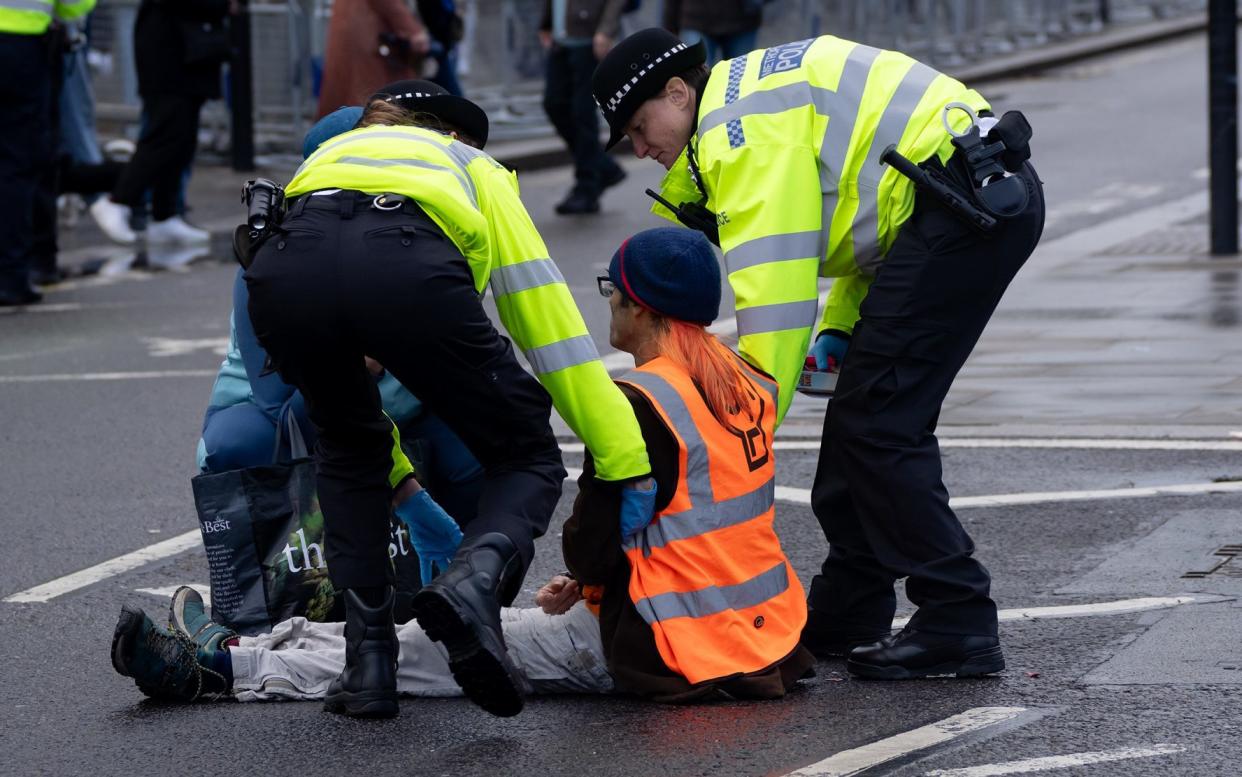
Today, a hearing at the Court of Appeal may define the future of civil disobedience. As a string of climate activist trials reach the courts, a defence used to acquit many of those charged could soon be cut off.
That defence, that companies would consent to damage caused to their properties during eco-protests if they fully understood the effects of climate change, has been put to the Court of Appeal for clarification by Attorney General Victoria Prentis, following the case of a woman being acquitted on such grounds.
If barred from being used as a defence going forward, the future of environmental activism may hang in the balance.
For those who have sat in traffic for hours unable to get to hospital or work as a result of protesters lying in the road, missed flights due to airport blockades, had their Ashes viewing halted by activists running onto the pitch or a gallery visit disturbed by flying soup hurled by eco-warriors, a legal crackdown might seem welcome.
Today’s [Feb 21] clarification will address what the law describing “destruction or damage and its circumstances” really means. Of around 160 verdicts involving eco-activists since 2019, 75 per cent came back not guilty, or in hung juries, according to tracking by campaign group Plan B – with many acquitted on the basis that some harms are permissible if they absolve greater ill, like breaking the window of a hot car if a dog is inside.
But concern about the climate “is not a licence for defendants to engage in vigilante action”, explains Sally Hobson, criminal barrister at London chambers the 36 Group. “Nor is it a licence for defendants to impose their own views on others under the pretext that those others would have agreed with them.”
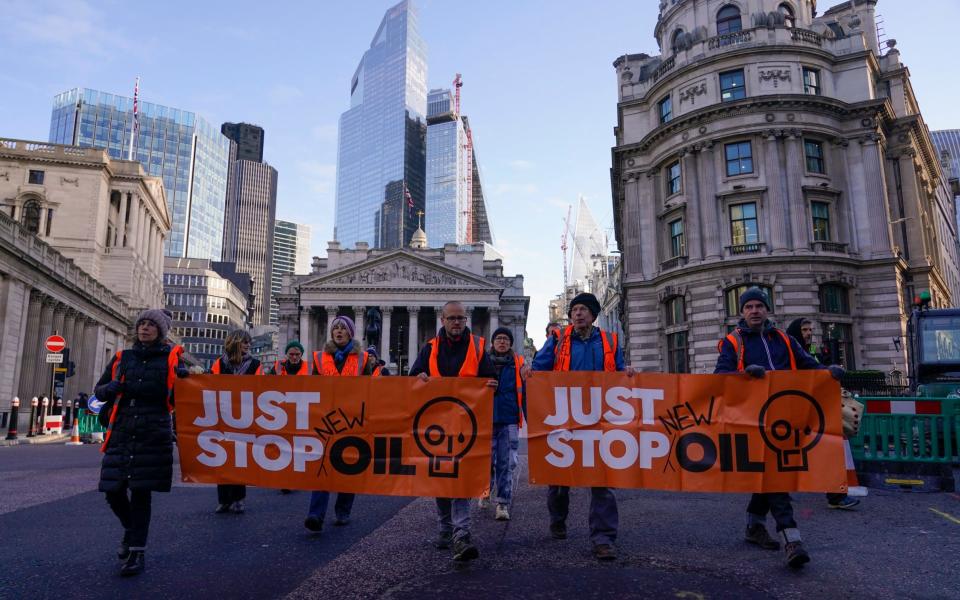
Hobson served as prosecutor in a November trial of nine Extinction Rebellion activists who had shattered windows at HSBC’s European headquarters, at an estimated cost of £500,000. While the defendants accepted they had caused the damage, the broader point – protesting against the bank’s investments in coal – made them justified in so doing, they said. The jury acquitted all nine.
“The defence is being used for a purpose never intended or anticipated by the legislators,” according to Hobson. “If the Court of Appeal adopts the narrow interpretation being urged upon them by the Attorney General it should follow that there will be more convictions.”
Others are concerned that if the clarification does go Prentis’s way, it could continue to strangle protest rights in England. Over the past two years, the Government has passed two bills limiting civil action (the Police, Crime, Sentencing and Courts Act in 2022 and the Public Order Act in 2023), granting police powers to make arrests if protesters make too much noise, for instance, and making public nuisance offences punishable by up to 10 years’ imprisonment.
Michel Forst, United Nations special rapporteur on environmental defenders, last month described England’s growing anti-protest legislation as “draconian”, and of “grave concern”.
Around 120 climate activists have been imprisoned in the UK to date, with verdicts ranging from acquittal to harsh punishment. In December, a 57-year-old father and Just Stop Oil protester was sentenced to six months in prison for participating in a march for “approximately 30 minutes”; a protester who scaled the Dartford crossing was given three years.
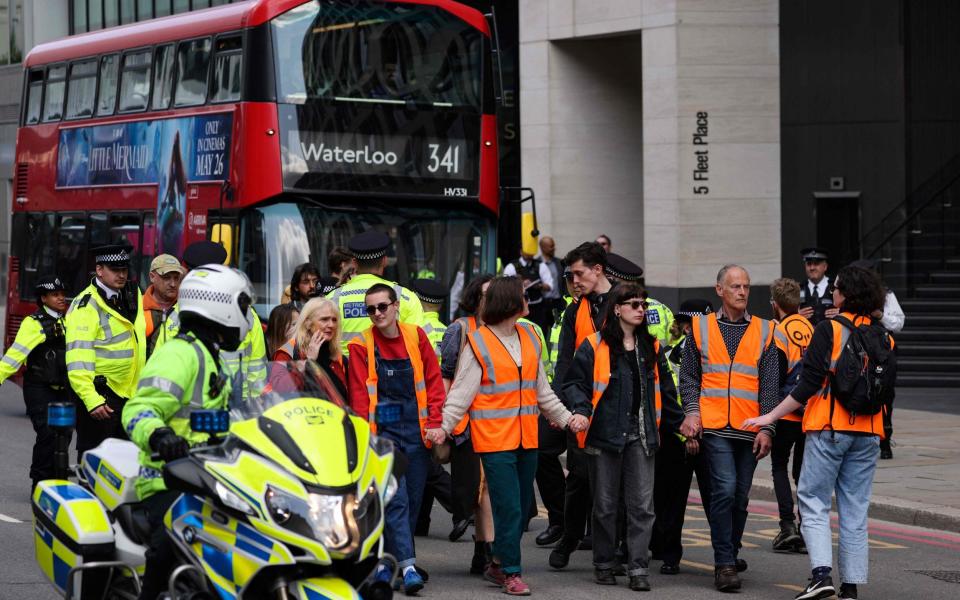
While many want to see the back of mass disruption, stopping the public from challenging bad actors would have a deleterious effect on our future, says Benjamin Franta, senior research fellow and head of the Climate Litigation Lab at the Oxford Sustainable Law Programme.
“The parties that are being protested against, whether that’s companies or governments – they’ve known about climate change for a long time. And they’ve failed to act,” he says. Protesters have “already gone through proper channels; we’ve waited for decades for this problem to be addressed, and it’s not [been]. I can understand how people would take to the streets now, because what other options do people have?”
A report last month from the World Economic Forum concluded that by 2050, climate change would result in $12.5 trillion of economic loss globally, and cause an additional 14.5 million deaths.
“That itself is enormously disruptive,” Franta says. “Who’s enacting the violence here on a greater scale? Is it the protesters who are breaking some windows? Or is it the government ministers, who are ensuring that entire countries become uninhabitable?”
He adds that property damage caused by activists is, by comparison, “basically insignificant”.
Franta has seen how protests can trigger wider change first-hand. During his time as a student at Harvard University, he became active in the fossil fuel divestment movement (pushing for the university to stop investing its multibillion dollar endowment into the likes of oil companies).
He was at one stage arrested for protesting – and maintains that “the right to participate in these things is an essential part of a democracy”; capable of moving the needle on matters from women’s rights to nuclear arms, race and sexuality. And on divestment too, public pressure worked: in 2021, Harvard agreed to stop investing in the fossil fuel industry, citing the threat of climate change.
Where things become murkier is the relevance of disobedient acts to the cause people are purportedly fighting for. “There is no nexus between a window being broken and the climate change crisis,” says Hobson – rather the jury must decide whether the police and media attention that follow serve the purpose at large.
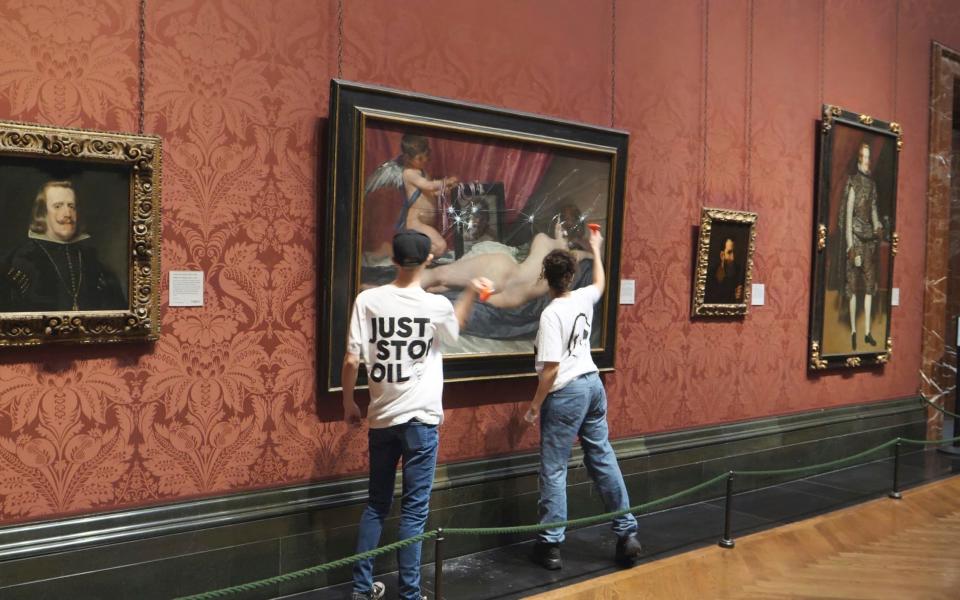
Though verdicts have been inconsistent, preserving juries’ power in the justice process is paramount, barristers urge (if the clarification is made today, juries will hear limited evidence about why the damage was caused, restricting their decision-making abilities). That cases of this kind have more often than not ended in acquittals “tells us something about what everyday people in society value and want”, says Franta.
The woman at the centre of the Attorney General’s case, who cannot be named for legal reasons, has also this week spoken out about the clarification’s potential effects, describing it as “an assault on the rights of juries to acquit someone having listened to the evidence… I feel like the Attorney General is trying to retrospectively challenge the jury’s decision”.
Some are sceptical about the timing of this challenge, too. “In the absence of a realistic chance of success, it looks more like grandstanding in an election year than a meritorious request for ‘clarification’,” says Joseph Kotrie-Monson, director at Mary Monson Solicitors.
Besides, Hobson adds, even if the more restrictive interpretation is brought in, “it is unlikely that the most devoted protesters would change what they do. Many are prepared to sacrifice their liberty for what they believe is the greater good,” likening themselves to “the Suffragettes and other protesters who resorted to damaging property to achieve their end goal”.
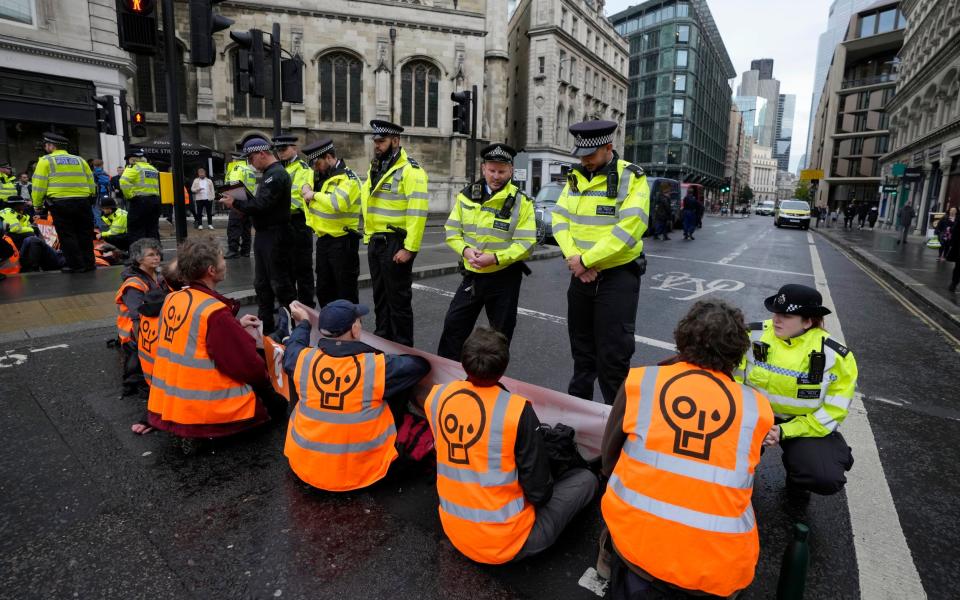
Protests and, indeed trials, can be a useful tool, she adds, facilitating martyrdom for many, as court cases allow further opportunity for concerns to be aired in full view.
Yet how reasonable this destruction seems to activists now may be short-lived, Hobson thinks.
“I would quite like to look back in 100 years to see where we are in terms of climate change and whether, as some of the protesters assert, they are justified.”

 Yahoo News
Yahoo News 
